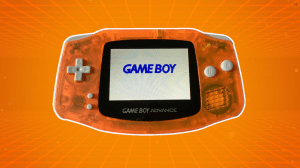
Nintendo has hit a huge milestone on the Tokyo Stock Exchange today as share values continue to rise. As of this morning, Nintendo hit a market capitalization of roughly $49 billion, compared to Sony‘s market cap of roughly $48.5 billion. Market Capitalization is a measure of worth of a company’s outstanding shares. Basically, when you take all of the stock held be shareholders, and multiply that by the current share value, you get your “Market Capitalization.”
Videos by ComicBook.com
Nintendo has continued to see upward trends since the launch of the Nintendo Switch back in March, demand for which has greatly exceeded what began as optimistic expectations. The Switch has only become more popular in the months following its launch, especially in Japan where consumers are craving games like Monster Hunter XX, Dragon Quest XI, and Splatoon 2.
The Nikkei (via NeoGAF) pointed out some interesting facts worth noting earlier in the month when Nintendo hit a market cap milestone of $45.2 billion. When that happened, it was the first time in over eight years that Nintendo had seen its market capitalization so high. At its current value, Nintendo is one of the top 15 companies (in terms of market cap) on the Tokyo Stock Exchange, beating out giants like Nissan Motors.
While this may sound crazy, it’s fascinating to note that Nintendo’s market cap was almost double what it is now back in 2007 following the unprecedented success of the Wii. Sure the Wii U was a flop, but zooming out to look at the big picture, Nintendo has been killing it with its hardware releases. Especially when you consider the 3DS, which despite being over six years old, continues to sell strongly.
It will be an interesting holiday season as Nintendo struggles to keep up with demand. Production of the Switch is ultimately tied to Toshiba’s ability to produce a certain flash memory component which is also in high demand from competing companies like Apple. As demand continues to rise sharply, will Nintendo be able to step up its production accordingly, and if not, how will that affect its overall value in the market? Time will tell.








